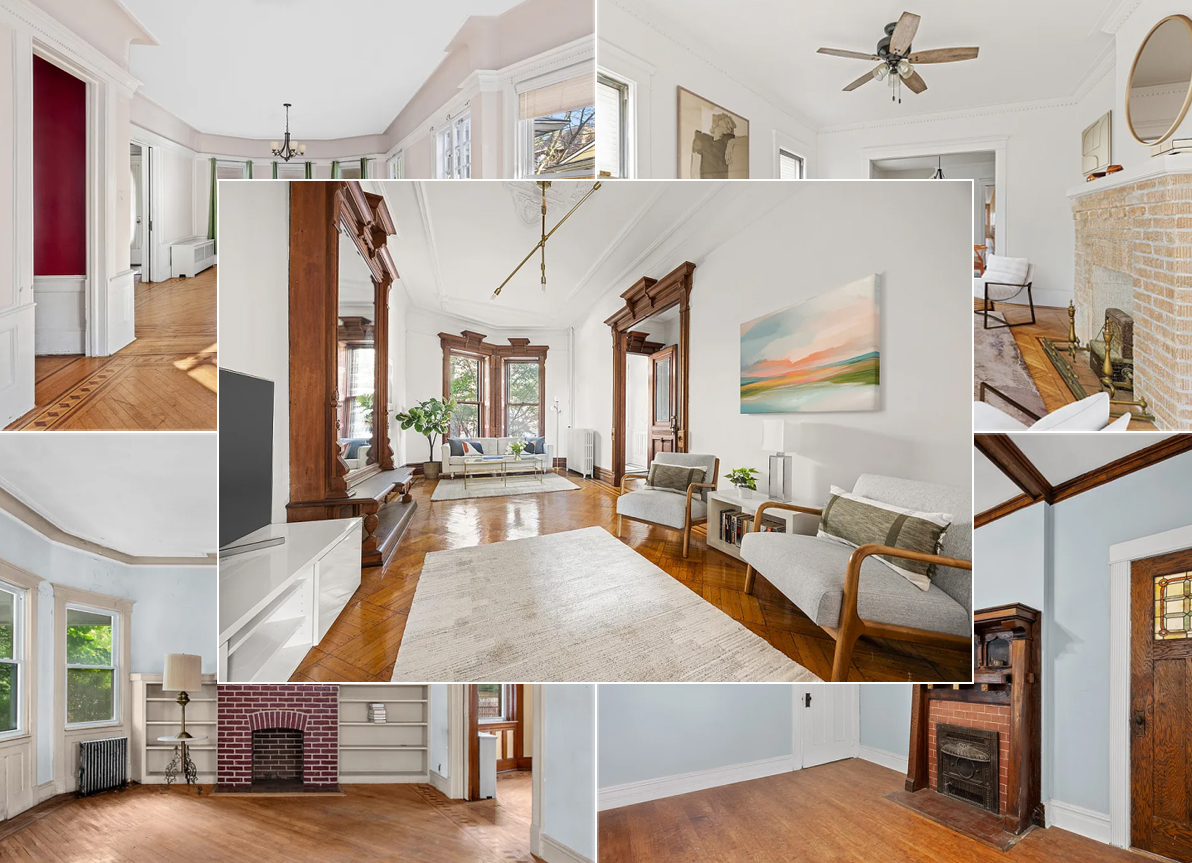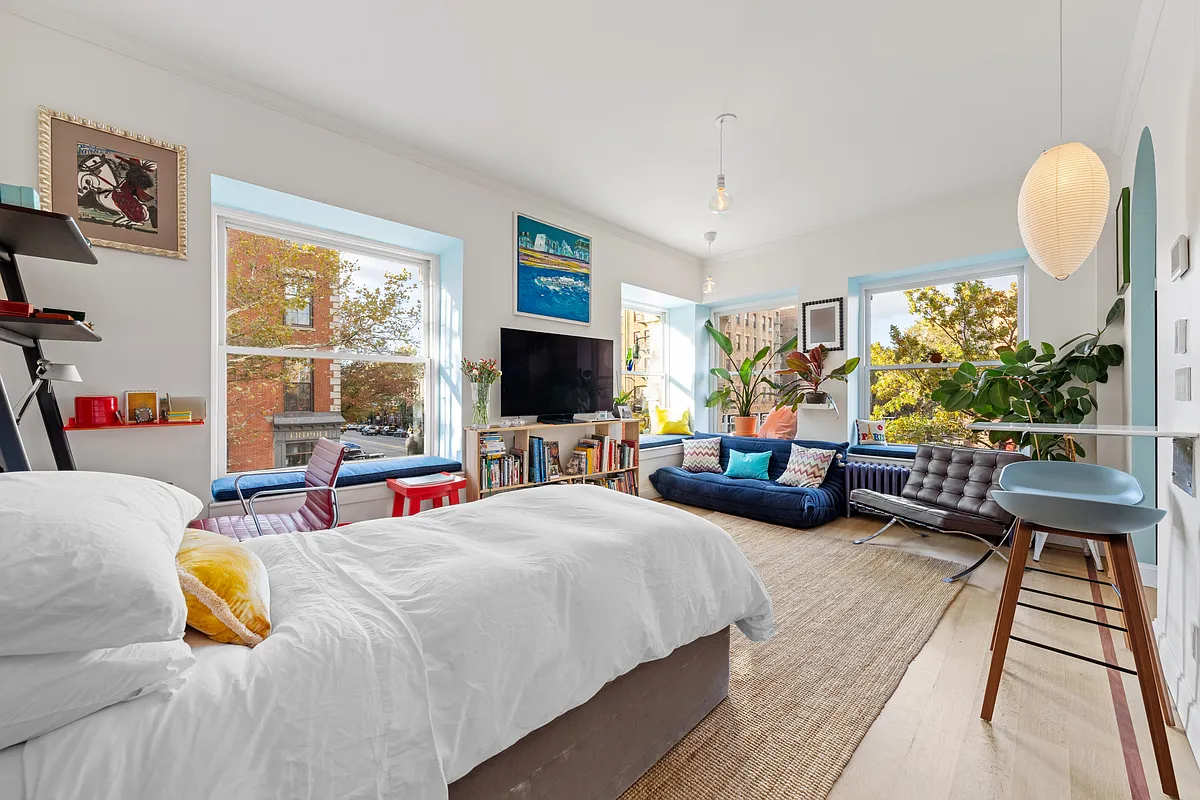Massive Renos: Are They Still Worth It?
The cover story in the real estate section of the Times this weekend takes a look at that age-old question: How much sense does it make to buy a fixer-upper? One couple that bought a $625,000 three-bedroom in the South Slope sees it paying off. Their renovation budget was $35,000; they’re on track to have…

 The cover story in the real estate section of the Times this weekend takes a look at that age-old question: How much sense does it make to buy a fixer-upper? One couple that bought a $625,000 three-bedroom in the South Slope sees it paying off. Their renovation budget was $35,000; they’re on track to have finished the work within a few months of closing; and the pre-reno property was appraised at $100,000 more than they paid. Another buyer profiled in the story, however, slashed her down payment from 45 to 30 percent in order to have dough on hand for a renovation. The article notes that there aren’t a huge number of fixer-uppers for sale in the city, but we wonder whether the weaker market means fewer people are willing to pony up for properties that need major overhauls. Does a buyer-driven market mean not as many people are settling for houses or apartments that need big renovations?
The cover story in the real estate section of the Times this weekend takes a look at that age-old question: How much sense does it make to buy a fixer-upper? One couple that bought a $625,000 three-bedroom in the South Slope sees it paying off. Their renovation budget was $35,000; they’re on track to have finished the work within a few months of closing; and the pre-reno property was appraised at $100,000 more than they paid. Another buyer profiled in the story, however, slashed her down payment from 45 to 30 percent in order to have dough on hand for a renovation. The article notes that there aren’t a huge number of fixer-uppers for sale in the city, but we wonder whether the weaker market means fewer people are willing to pony up for properties that need major overhauls. Does a buyer-driven market mean not as many people are settling for houses or apartments that need big renovations?
Reluctant Renovators [NY Times]
Photo by reclaimedhome.





Time? Let’s see…we bought the place at the end of 2005 and we’re still working on it! We finished the duplex apartment in 8 months and the parlor floor 3 months later. Then we got lazy and we are doing a couple of hours here and there now. During the first year, we brought in contractors as needed and had a lot of help from a guy we use regularly for projects that get out of control. My husband took about a month off from work and I worked on it full time for about six months. The rest was weekends and after work. Our price doesn’t cover the cost of our own labor, but I’m a freelancer, so it’s not like I wasn’t able to take on other jobs during the reno. If we didn’t have to rush to finish and get it rented (so we can pay our mortgage) and we were able to do ALL of the work ourselves, I’m confident it would’ve come in at around $100k.
Hey rh that is some inspiring work you guys have done.. we really dig the outcome. Congratulations on a job well done but how much time did it take you? Working on the place full time? Regular job and weekend warrior set up? Thanks
Holy crap…that’s my husband! And my house! I guess I should weigh in here. We’ve yet to do an entire gut job on a house, but we’ve done major work. Our current brownstone, when finished, will come in at around $175k. Not a “true gut reno”, but we’re talking structural, electric, plumbing and finishes in a 2600sq ft, 4 story home. Click on photo to view the “Bed Stuy reno” flickr images and you’ll get a sense of what an under $200k reno looks like. We did much of the work ourselves and salvaged materials where we could. We do these things not so much for monetary value, but because we have a sick addiction to fixing up homes that need some lovin’.
“anyone that tells you you can do a “gut reno” on a 100-year old for anything less than about $200k per floor is either smoking crack or not talking about a true gut reno.”
That’s my impression. These things tend to cost more than they seem. And you gotta be right there to manage them or you’ll likely get something a little different than you paid for.
One would think that reno costs track the general housing market but because of increases in the price of oil and other commodities (copper, steel, etc.) and lots of infrastructure and other big jobs currently underway in NYC, the cost of renovating a townhouse is still going up, up, up even as townhouse prices stagnate or decline.
I still think it’s worth it to renovate but it takes a strong stomach to be in reno hell and lots of cash.
Benefit is a place you built and most likely a multiple in house value appreciation of what you put in (the worse shape it was in pre-reno, the larger the multiple).
Also, anyone that tells you you can do a “gut reno” on a 100-year old for anything less than about $200k per floor is either smoking crack or not talking about a true gut reno.
p.s. where’s the mention of the FLEA NYT article? Scared of the FLEA haters BStoner?
I was going to post this link on the Forum. It’s a discussion about psf costs to gut reno a townhouse. It seems there are wild price variations depending on where in NYC you are renovating. It’s crazy:
http://www.streeteasy.com/nyc/talk/discussion/4380-townhouse-gut-renovation
Personal anecdote and possible red herring, but I am actively looking to buy and very much avoid recently renovated apartments (I don’t avoid new construction, just reno jobs). Sellers and their agents tend to think that a few high-end kitchen appliances add a lot more value than the cost to buy and install them. I tend not to look at older apartments if the listing includes appliance brand names. I would rather buy for less and have the work done myself.
“Does a buyer-driven market mean not as many people are settling for houses or apartments that need big renovations?”
I would guess so. Years ago I read an old Times RE article (circa 1995) citing a Caroll Gardens broker for saying that, at that time when the market was rebounding from the 80’s/90’s “crash”, home shoppers were eyeing fixer-uppers again. So this leads me to believe that the cost uncertainty of a reno makes such listings much more undesirable than their move-in counterparts, especially in a down market.
BTW, I don’t think the $35K renovation by the couple in park slope is a representative example. That’s an apartment right? Your average brownstone gut job seems more appropriate. In the latter case, you incur all costs as opposed to a co-op or condo board.
However, with construction slowing down immensely, would’nt it be easier to find cheaper and more quality labor and materials?